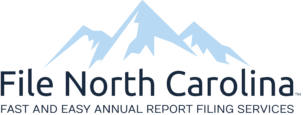So, you just incorporated your business in the State of North Carolina. It’s standard to wonder what you should do next. We’ve put together a checklist to keep your business marching forward.
Write your business plan.
Starting a business involves planning and making critical marketing, operational, financial, and legal decisions and activities.
Your business plan is the vision and roadmap for structuring, growing, and maintaining your new business. It should be clear and concise so lenders, management, and potential investors can quickly grasp.
Open a business bank account and secure a business credit card.
A small business checking account can help you handle legal, tax, and day-to-day issues. The good news is that it’s easy to set one up if you have the proper registrations and paperwork.
Keep your business and personal finances separate. When you open a business bank account, you will likely need to provide a copy of your incorporation documents and your Tax identification number (EIN). Officers and company personnel should only use the business bank account for business transactions, such as paying vendors or receiving customer payments. Once your bank account is operational, you should secure a business credit card to build up the business credit score and use it for day-to-day transactions and infrastructure purchases such as computers, cell phones, printers, office furniture, etc.
Select an Accounting Software
Whether you hire a bookkeeper or CPA or maintain the books yourself, you will need good bookkeeping and accounting software. QuickBooks is the most popular. However, other options are more cost-effective and still have all the necessary features and benefits. The key features you should consider include managing receivables and payables, tracking income and expenses, generating invoices, running reports, calculating taxes, generating balance sheets, cash flow, and profit and loss reporting.
Hire a CPA, Accountant, Bookkeeper
Unless you’re a seasoned tax and bookkeeping professional, hiring a tax and accounting professional is one of the best investments you can make in your business. Establishing a relationship with a tax professional early on can help set you up for success, and they can be a trusted adviser to your business as you grow.
Pick your business location.
Your business location is one of the most important decisions you’ll make. Whether working from your home office, setting up a physical retail or commercial area, or launching an online store, your choices may impact your taxes, legal requirements, and revenue.
Apply for licenses and permits!
Stay legally compliant to keep your business running smoothly. The licenses and permits you need for your business will vary by industry, state, location, and other factors.
Your industry and jurisdiction determine you. Most businesses need local, state, and federal licenses to operate. Check with your local government office (and even an attorney) for licensing information tailored to your area.
Secure Business Insurance
Most businesses will need insurance, especially if you have employees. There are different kinds of business insurance depending on your business type. You must find the right coverage that protects your business and you personally. We encourage you to see an insurance agent to assist with your insurance needs. Business insurance is tricky. We suggest you find an independent insurance brokerage to help you shop for the best coverages instead of going directly to an insurance company. An independent insurance agent represents several insurers so they can shop for the best rates and coverage options.
Consider Legal Counsel
Not all businesses need an attorney; however, selecting an attorney should be a risk mitigation step if you are operating in a highly regulated industry. For companies not operating in highly regulated industries, the legal counsel can help you with other things, including, but not limited to, business contracts, writing or reviewing your company terms of service, handling legal claims, insurance separation between you personally and your business to maximum your business and personal protection, and much more.
Launch a business website.
An online presence is critical to demonstrate credibility and serve as a client acquisition and support tool for your business. A website also creates a presence for your business 24/7, 365 days per year. Setting up a website and social media profiles early on, even if they’re simple, can help you expedite client acquisition and develop relationships with customers.
SEO and PPC digital marketing
Once your website is up and running, you must optimize it for search engines (SEO). Optimizing your site for SEO helps drive natural or organic traffic to your website. Think about what happens when you go to “GOOGLE” something. While SEO helps drive low-cost or free traffic to your website, PPC is a digital marketing strategy where you pay to drive people who are looking for the goods or services you provide to your website. You may need to hire a digital agency to help with this, or you could spend a lot of time, money, and energy that will lead to your desired results. SEO and PPC are intended to help you acquire traffic and clients. When a potential customer searches for a specific service or product, the search engine can point them to your site or show them one of your digital ads. SEO is a long-term strategy, so don’t expect much traffic from search engines initially—even if you’re using all the right keywords. PPC can help you drive more short-term traffic. The two working together is core to an excellent digital marketing strategy.
Create Relevant Content
Provide quality content on your website that makes it easy for customers to find the correct answers to their questions. Content marketing ideas include blogs, videos, free how-to guides, customer testimonials, and demos.
Get Listed in Online Directories
You’ve probably used online directories like Google My Business, Yelp, and Facebook to find local businesses. Some city halls and chambers of commerce have business directories, too. Include your business in as many relevant directories as possible. You can also create listings for your business on specific directories that focus on your industry.
Select the Right Business Technology and Tools
Business tools can make your life easier and your business more smoothly. The right tools can help you save time, automate tasks, and make better decisions.
In addition to the tools already covered, consider the following tools in your collection:
- POS and Merchant services: Point of Sale and Merchant providers allow you to accept credit cards and alternative payment types. When customers make a purchase, money deposits go directly into your business account. You can also use merchant services to set up recurring billing or subscription payments. Your bank may provide merchant services. Other popular ones include QuickBooks, Square, and Strip.
- Project management: This software allows you to plan, execute, and track orders and projects. A project management tool can also help employees manage tasks and allocate resources.
Develop a Social Media Strategy
Your potential customers use social media daily—you must also be there. Post content that’s interesting and relevant to your audience. Use social media to drive traffic back to your website, where customers can learn more about what you do and buy your products or services.
You can be on only some of the available social media platforms. However, it would help if you had a presence on Facebook and Instagram because they offer e-commerce features.
Summary
Congratulations on starting your business. You knew it would not be easy, but there is arguably nothing more satisfying than being your boss. We hope this checklist helps provide you with some of the critical initial steps you should consider as you embark on your new endeavor.

